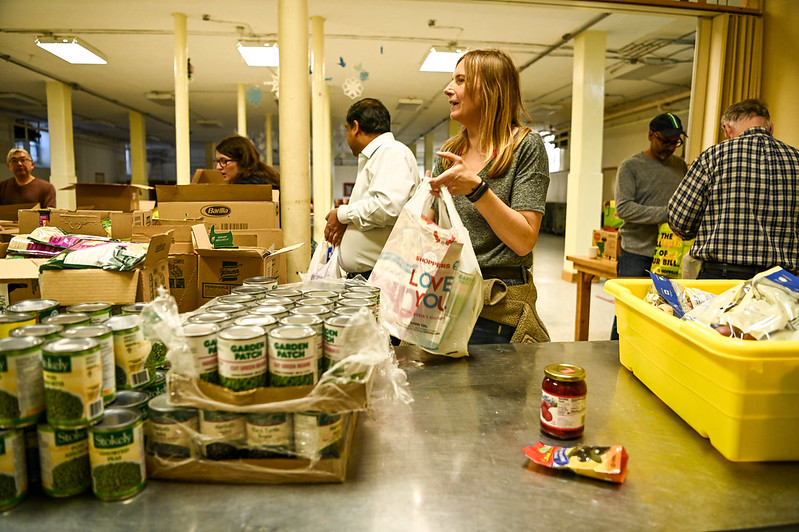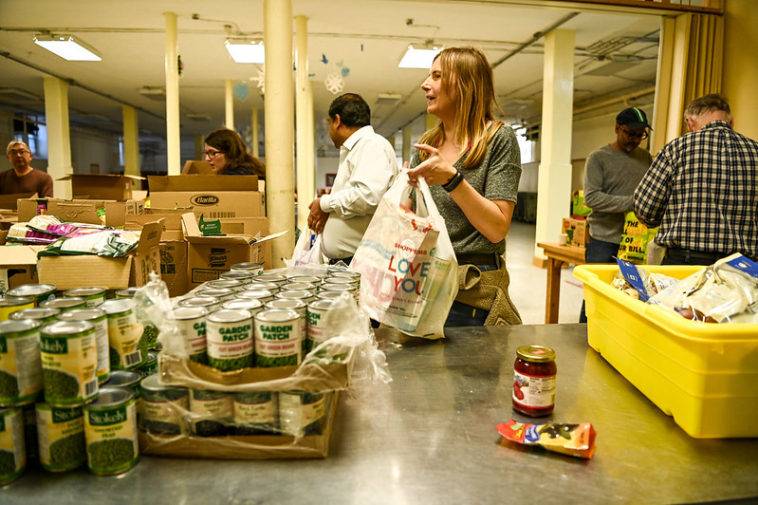Food banks across Canada receive $100M boost from feds

The federal government announced Friday it would distribute $100 million to food banks and other food security organizations struggling with too few resources and increased demand during the COVID-19 pandemic.
The funds were announced at a virtual news conference, where Agriculture Minister Marie-Claude Bibeau detailed the third round of funding under the Emergency Food Security Fund, bringing the total spent during the pandemic to $300 million.
According to numbers released by Statistics Canada in June, one in seven Canadians said they faced food insecurity within their household in the past 30 days.
Josée Desjardins, national vice-president of the Breakfast Club of Canada, which is receiving $18.5 million, said the extra money will allow her group to expand its breakfast program to half of the schools on its 100-school-plus waiting list, the majority of which are in B.C. At the start of the 2020 school year, program attendance increased 30 per cent across the country. The club hopes to serve an additional 200,000 children by September 2021.
“There are two things: Obviously the need has increased, as well as the cost per breakfast … due to all the public safety measures that need to be taken into consideration,” she said, referencing personal protective equipment and the shift towards pre-prepared food.
What people are reading
Desjardins said demand was already high before COVID-19, especially in B.C. and particularly Vancouver, where cost of living is especially high.
At the news conference, Bibeau broke down where the money will go: $18.5 million to Food Banks Canada, $18.5 million to Breakfast Club of Canada, $8.9 million to Second Harvest, $8.9 million to Community Food Centres Canada, $8.85 million to the Salvation Army, $1.34 million to La Tablée des Chefs and $5 million allocated from reserve funds. Also, $30 million will go to Indigenous Services Canada for its Indigenous Community Support Fund.
Bernadette Siracky, executive director of the Kamloops Food Bank, said the initial demand for food services when COVID-19 hit was unprecedented.
“We had an initial spike of need that was very grand. We ran out of perishable products for the first time in a decade, literally, and had lineups that were literally blocks long,” she said.
But things started to slow down once the Canada Emergency Response Benefit was put in place.
“We’re at a point now where our client base has plateaued again and it’s even below a little what it normally would be at this time of the year, but we anticipate nationally a spike once we figure out what happens with the financial supports provincially and federally,” she said.
Agriculture Minister Marie-Claude Bibeau detailed the third round of funding under the Emergency Food Security Fund on Friday, bringing the total spent during the pandemic to $300 million. #cdnpoli #foodbanks #foodsecurity
For Desjardins, the money is a welcome help, but also a reminder of what her group wants to achieve — a national school lunch program. She said the boosts from the government are helpful, but that more permanent solutions are needed to solve food insecurity in the country.
“The only thing we hope … with the help of the government and … the private sector is to create (a) national school feeding program,” she said. “So this is good what we’re doing, but we get to make sure that the children and youth can benefit from a healthy meal, year after year.”
Cloe Logan / Local Journalism Initiative / Canada’s National Observer
Published at Sat, 19 Dec 2020 01:03:37 +0000






Comments
Loading…